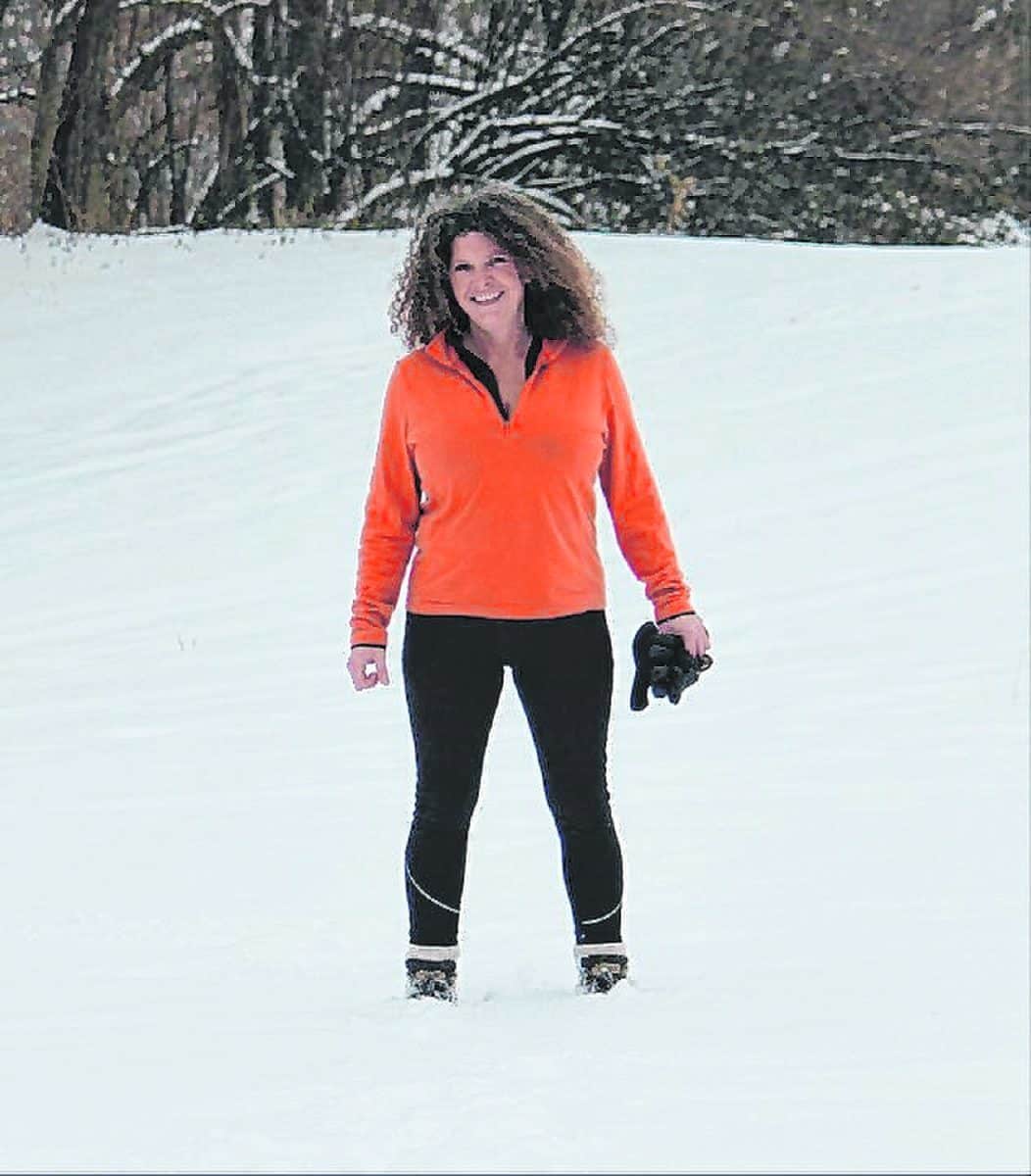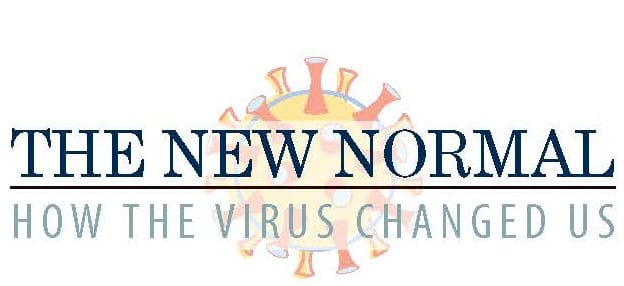We asked readers a few weeks ago to volunteer to have some “super-honest conversations” about how their lives have been altered in the past year due to the pandemic. The story below is part of the third installment of a three-week series.
Jules Dunlap is the person you might hear on the other end of a call, telling you you’ve been exposed to COVID-19.
Before the pandemic hit, she had been working a series of minimum wage service jobs: waitressing, cleaning, retail, doing “trash-outs” and demos on homes being flipped.
When she heard on the news that COVID was coming, she knew everything was going to be shut down. She left about a week before she would have been furloughed.
She was scared, a 5 on a scale of 1 to 5 about the pandemic. As a 35-year-plus smoker with high blood pressure, she was at higher risk for serious illness. So was her boyfriend who is immunocompromised.
Their household, including Dunlap’s 17-year-old son, Carson, went on lockdown.
For about two months, Dunlap, 52, was unemployed.
Then, in May 2020, a friend posted a link on Facebook about people being needed to work as contract tracers, tracking down people who’d been in contact with people who tested positive for COVID. Dunlap applied and was hired the next day. Now, she works from home, where she doesn’t have to change out of her PJs or wear a bra if she doesn’t want to.
It’s a lifestyle she never would have considered had the pandemic not forced her onto a different path. “I love working from home. I’m a very extroverted person, and I’m kinda-sorta turning into an introvert because of the pandemic. … I’m enjoying my introvertness, and I never did before,” she said.
Financially, it’s been so much better than the work life she had before.
“COVID’s actually brought be a lot, unfortunately,” she said. “… I was making minimum wage and now I’m making double to triple that, and I have been able to afford to do the things at home that I need to do and save money that I’ve not been able to do for a very long time.”
Some of that boost has come from not going anywhere, saving on gas and nonessential purchases. They haven’t eaten in a restaurant since the pandemic started. She gets out about once a week to drop off her trash at Bear Hardware, get groceries, go to CVS, and, “once in a blue moon,” hit the Family Dollar.
“We just stay at home. We don’t do anything.”

That’s been a big adjustment for this music festival-loving social butterfly who’s accustomed to having “pickin’ parties” in her yard with “everybody who’s anybody” in the Brown County music scene. She really wants to go see a live show and dance and do her thing, but she knows it’s not safe yet. “I miss my people,” she said.
It’s been an adjustment for her son, too, who’s been remote-learning since last March. It’s been tough to essentially lose the end of his junior year and his entire senior year to COVID and to be physically isolated from his friends. Lately, though, she’s been letting up a little, allowing him to get together with “kids who are careful.”
To keep her spirits up, she’s been video chatting with a long list of friends throughout the country — high school and junior high school classmates of hers, even — some of whom she wasn’t really close with back in the day.
“A lot of people were very, very lonely, and I really reached out to so many people and we just chatted, people I hadn’t talked to in years, and they were like, ‘Call me back! I want to talk more to you. This has been great!’”
“I needed that also,” she added.
She didn’t realize how emotionally draining her new job was going to be. In her work as a contact tracer and now working with information service 211, she has been a listening ear for hundreds of people who are mourning, who are scared, who are angry, who are questioning, “Why me? Why is this happening?”
“It’s been a really hard time,” she said, her voice breaking. “And you’ve got to keep your cool. You can’t cry. You’ve got to keep your composure and talk to them and be there for them, because some of them just want to talk because they’re sad and they’re lonely.
“You talk to little old ladies living in the middle of a cornfield on a farm, and their husband died, and they’re alone, and they can’t see their grandbabies or their children or their family or friends.”
“This has been hard. It’s been a really hard struggle.”
She hasn’t sought counseling, though her employer offers it, and her friends have passed her numbers of people to talk to. “I guess, after a certain point, even though it’s hard, you just, after doing this for so long, you get to a point where you take it, and after the call, you step back for a few seconds and gain composure and you’ve got to let it go. Because you have another call.”
A year into the pandemic, she would still rate her level of concern at a 5, “because I see it every day. I live it. I breathe it. I talk it. There’s still people dying. The rates are not so high as they were, but I believe we’re getting ready to have a fourth wave, with spring break and lifting all these mask mandates and opening things up more.
“We’re a tourist town, and everybody’s going to go willy-nilly and open it all up and I’m just going to sit back and wait, because come April 6, I’m not going anywhere again, and I’ll be watching the rates go up. And I hate that for us.”


